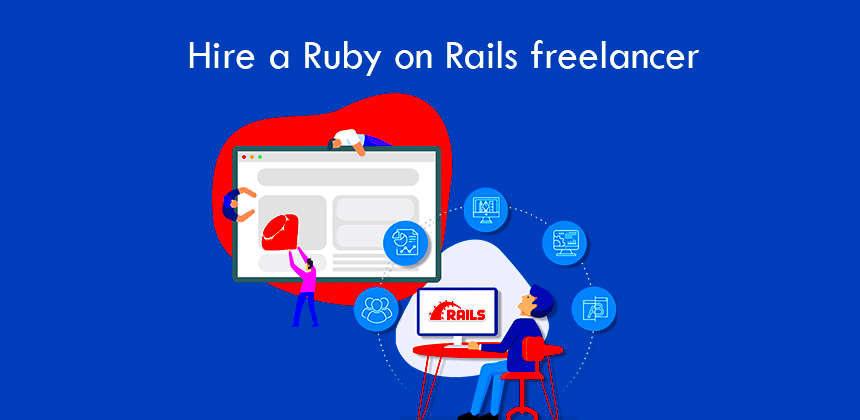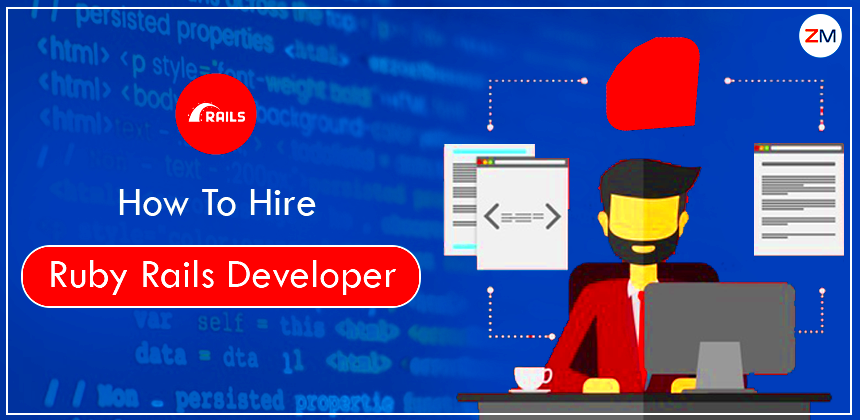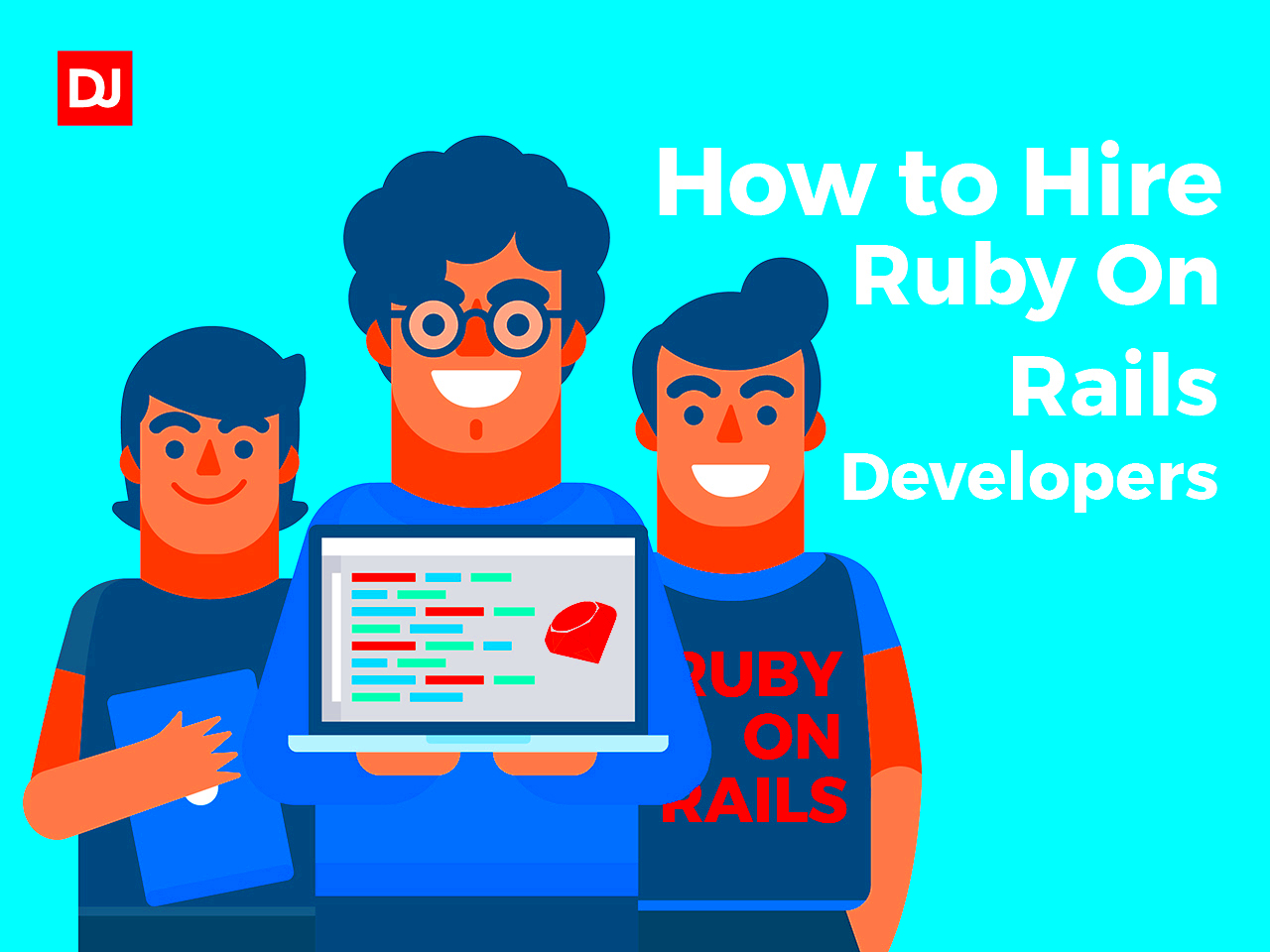If you have a passion for coding and want to work independently, becoming a freelance Ruby on Rails developer can be a great option. Ruby on Rails is a powerful framework for building web applications quickly and efficiently. Many businesses prefer using it because of its simplicity and the ability to create scalable applications. As a freelance developer, you can enjoy the freedom to choose your projects, set your own rates, and work from anywhere.
Key Skills Needed to Be a Freelance Ruby on Rails Developer

To succeed as a freelance Ruby on Rails developer, you’ll need a solid set of technical and soft skills. Here are the key skills that are essential:
- Ruby Programming Language: Understanding Ruby is the foundation. It’s the main language used in Rails development.
- Ruby on Rails Framework: Mastering Rails, its tools, and the MVC (Model-View-Controller) architecture is critical.
- HTML, CSS, and JavaScript: These are basic skills for frontend development. You’ll need to integrate the backend with the front end.
- Database Knowledge: Knowing how to work with databases like PostgreSQL, MySQL, or SQLite is essential for managing data in Rails applications.
- Version Control (Git): Version control systems like Git help you manage code and collaborate with others effectively.
- Testing and Debugging: Ensuring that your code is bug-free and meets quality standards is a must for freelance work.
Having a good understanding of these technical skills will help you create high-quality applications that your clients will love. Additionally, soft skills like communication, time management, and problem-solving are important for handling projects efficiently.
Also Read This: What Does Fiverr Use to Book Appointments?
How to Get Started as a Freelance Ruby on Rails Developer

Getting started as a freelance Ruby on Rails developer requires a combination of building your skills, gaining experience, and marketing yourself effectively. Here’s how you can begin:
- Learn the Basics: First, ensure you have a strong understanding of Ruby and the Rails framework. You can find many online courses, tutorials, and coding bootcamps that offer free and paid resources to help you get started.
- Build Your Portfolio: Start by creating a few personal projects or contributing to open-source projects. These will showcase your skills to potential clients.
- Find Freelance Opportunities: Once you feel confident, look for freelance gigs on platforms like Fiverr, Upwork, or LinkedIn. You can also network with potential clients through meetups or online communities.
- Set Your Rates: Research the average hourly or project-based rates for Ruby on Rails developers. When you're starting out, you may want to charge lower rates to attract clients and build your reputation.
- Build Client Relationships: Good communication is key to maintaining happy clients. Be clear about project timelines, pricing, and expectations from the start.
By following these steps, you'll be well on your way to building a successful freelance career as a Ruby on Rails developer.
Also Read This: How to Avoid Fiverr Service Fee
Building a Strong Portfolio for Freelance Ruby on Rails Work

Having a strong portfolio is one of the most important steps in attracting clients as a freelance Ruby on Rails developer. Your portfolio should showcase your skills, highlight your best work, and demonstrate your ability to solve real-world problems using Ruby on Rails. Here’s how to build an impressive portfolio:
- Showcase Personal Projects: Start by creating a few small projects using Ruby on Rails. These could be anything from a blog platform to an e-commerce site. Focus on building projects that showcase your understanding of both frontend and backend development.
- Contribute to Open-Source Projects: Contributing to well-known open-source Ruby on Rails projects can show potential clients that you’re actively involved in the community and have experience working on collaborative projects.
- Include Case Studies: If you’ve worked with clients in the past, include detailed case studies. Describe the challenges you faced, how you solved them using Rails, and the results. This helps potential clients understand how you approach problem-solving.
- Keep Your Code Clean and Well-Documented: Clean, well-organized code is essential. Make sure your code is easy to read and properly commented, as it reflects your professionalism.
- Highlight Skills: List the key Ruby on Rails skills and technologies you’ve worked with, such as PostgreSQL, APIs, background jobs, or testing frameworks like RSpec.
By putting together a solid portfolio, you will be able to impress potential clients and land more freelance opportunities.
Also Read This: How to Send My Refund to My PayPal from Fiverr
Setting the Right Rates and Managing Finances
As a freelance Ruby on Rails developer, setting the right rates and managing your finances is crucial for your long-term success. Here's how to approach both:
Setting the Right Rates
Your rates should reflect your skills, experience, and the value you bring to clients. When determining your rates, consider the following factors:
- Market Research: Look at what other Ruby on Rails developers are charging. Freelance platforms and industry websites can give you a good idea of the going rates.
- Your Experience: If you’re just starting, you may need to charge lower rates until you build your reputation. As you gain experience, you can increase your rates.
- Project Scope: Consider the complexity and time commitment of a project. For larger or more complex projects, you can charge higher rates.
- Hourly vs. Project-Based Rates: You can choose to charge by the hour or by the project. Hourly rates are better for ongoing work, while project-based rates can help with budgeting for both you and the client.
Managing Finances
As a freelancer, you need to manage your finances carefully. Here are some tips:
- Track Your Income and Expenses: Use tools like QuickBooks or FreshBooks to track your income and expenses. This will help you stay organized come tax season.
- Save for Taxes: Set aside a portion of your income for taxes, as freelancers are responsible for paying their own taxes.
- Build an Emergency Fund: Freelance work can be unpredictable. It's a good idea to have a savings buffer to cover expenses during lean periods.
By setting reasonable rates and keeping track of your finances, you can ensure the financial health of your freelance career.
Also Read This: How to Make Money on Fiverr
Marketing Yourself as a Ruby on Rails Developer
Marketing yourself is key to attracting clients as a freelance Ruby on Rails developer. You need to put yourself out there, make connections, and ensure potential clients know about your services. Here’s how you can effectively market yourself:
Build an Online Presence
Your online presence plays a big role in attracting clients. Here’s how to build it:
- Create a Professional Website: Your website should highlight your skills, showcase your portfolio, and include contact information. It's your digital business card.
- Engage on Social Media: Use platforms like LinkedIn and Twitter to share your work, insights, and connect with others in the tech community.
- Start a Blog: Sharing technical knowledge through a blog can position you as an expert. You can write about Ruby on Rails tutorials, case studies, or your freelance journey.
Leverage Freelance Platforms
Platforms like Fiverr, Upwork, and Freelancer can help you get started by providing access to clients who are actively looking for Ruby on Rails developers. To succeed on these platforms:
- Create an Optimized Profile: Make sure your profile is complete, with a strong description, portfolio samples, and testimonials if possible.
- Respond Quickly: Many clients hire developers who respond quickly to proposals. Be sure to be prompt in your communication.
Network with Other Developers
Networking with other developers can lead to job referrals or collaborations on projects. Here are some ways to network:
- Attend Meetups and Conferences: Ruby on Rails conferences or local meetups can provide opportunities to meet other developers and potential clients.
- Join Online Communities: Participate in online forums like Stack Overflow, GitHub, or Ruby on Rails-related subreddits.
Marketing yourself effectively will increase your visibility and attract more clients, helping you build a successful freelance career.
Also Read This: How to Buy Services on Fiverr
Common Challenges for Freelance Ruby on Rails Developers
While freelancing offers a lot of freedom, it also comes with its share of challenges. As a Ruby on Rails developer, you may face unique hurdles that require patience, persistence, and problem-solving. Here are some common challenges freelance developers face:
- Finding Consistent Work: One of the biggest challenges is ensuring a steady stream of projects. Freelancers often have to hustle to find new clients, especially when starting out. You need to continuously market yourself and maintain relationships with past clients.
- Setting Realistic Deadlines: Managing time effectively can be tough, especially when juggling multiple projects. Setting achievable deadlines and avoiding overcommitment is essential to avoid burnout.
- Managing Client Expectations: Clients may have high expectations regarding project timelines, costs, and deliverables. Clear communication and setting realistic expectations upfront can help avoid misunderstandings later on.
- Dealing with Scope Creep: Scope creep happens when the project requirements expand beyond the original agreement without additional compensation. This can be frustrating, so make sure to define the scope clearly in the contract.
- Handling Payment Delays: Freelancers sometimes face delayed payments, especially with new clients. Having a clear contract, setting milestones, and using invoicing software can help manage this issue.
While these challenges can seem overwhelming at times, with careful planning, good communication, and solid time management, you can overcome them and thrive as a freelance Ruby on Rails developer.
Also Read This: What Happens If My Order on Fiverr is Late?
Frequently Asked Questions (FAQ)
Here are some common questions about becoming a freelance Ruby on Rails developer:
- What do I need to learn before becoming a freelance Ruby on Rails developer?
Start by learning Ruby, the Rails framework, HTML, CSS, and JavaScript. Additionally, knowledge of databases (e.g., PostgreSQL) and version control (Git) is essential. - How can I find clients as a freelance Ruby on Rails developer?
You can find clients through freelance platforms like Fiverr, Upwork, or Freelancer. Networking at conferences, joining online communities, and having a professional website also help attract clients. - What is the average hourly rate for freelance Ruby on Rails developers?
Rates can vary depending on experience and location, but most freelance Ruby on Rails developers charge between $50 and $150 per hour. Beginners may charge less, while experienced developers can demand higher rates. - How can I build a strong portfolio?
Start with personal projects or contribute to open-source Ruby on Rails projects. Include detailed case studies and clean, well-documented code in your portfolio. - What should I include in a freelance Ruby on Rails contract?
A good contract should outline the project scope, deadlines, payment terms, and any additional terms regarding revisions, scope changes, or cancellations.
Conclusion
Becoming a freelance Ruby on Rails developer offers the flexibility to work on exciting projects, set your own schedule, and be your own boss. However, success in freelancing requires hard work, continuous learning, and effective communication. By building a strong portfolio, managing your finances wisely, and marketing yourself, you can stand out in a competitive field. While challenges will come your way, with persistence and problem-solving, you can overcome them and build a thriving freelance career. Keep refining your skills, stay updated with industry trends, and be proactive in managing your projects. Your freelance Ruby on Rails journey can be incredibly rewarding!




